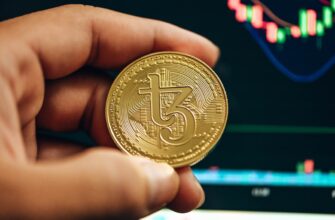Understanding Cryptocurrency Taxation in Dubai
Dubai has emerged as a global hub for cryptocurrency innovation, attracting investors and businesses with its progressive regulations and tax-friendly policies. While the UAE imposes no personal income tax, understanding cryptocurrency tax in Dubai is critical for compliance and financial planning. This guide breaks down key rules, reporting requirements, and strategies for navigating crypto taxes in Dubai.
Dubai’s Tax Framework for Cryptocurrency
Dubai operates under the UAE’s federal tax system, which offers significant advantages for crypto users:
- No Personal Income Tax: Individuals are not taxed on crypto trading profits, mining rewards, or capital gains.
- Corporate Tax Exemptions: Businesses in free zones may qualify for 0% corporate tax if they meet specific criteria (post-June 2023 reforms).
- No VAT on Crypto Transactions: The UAE excludes cryptocurrencies from VAT as they aren’t recognized as legal tender.
Regulated by the Dubai Virtual Assets Regulatory Authority (VARA), crypto activities require adherence to anti-money laundering (AML) laws, even if taxes are minimal.
Types of Taxes Impacting Crypto in Dubai
1. Income Tax
– Individuals: 0% on all crypto earnings.
– Businesses: 9% corporate tax on profits exceeding AED 375,000, unless exempt.
2. Capital Gains Tax
– No tax applies to profits from selling crypto assets.
3. Value-Added Tax (VAT)
– Crypto transactions are VAT-exempt, but goods/services sold for crypto are taxed at 5%.
4. Withholding Tax
– Dubai imposes no withholding taxes on crypto payments.
Crypto Reporting Requirements in Dubai
While taxes are low, compliance remains essential:
- Businesses must disclose crypto transactions in financial statements.
- AML/KYC rules require verifying customer identities for transactions over AED 55,000.
- Foreign nationals may need to report assets under FATCA/CRS agreements.
Tax Planning Tips for Crypto Investors
- Maintain detailed records of trades, wallets, and transactions.
- Structure crypto activities through free zone entities for potential tax benefits.
- Use Dubai’s crypto-friendly banks for seamless fiat conversions.
- Consult tax professionals to navigate cross-border obligations.
FAQ: Cryptocurrency Tax in Dubai
1. Do I pay taxes on Bitcoin profits in Dubai?
No—individuals owe no income or capital gains tax on crypto earnings.
2. Is cryptocurrency trading legal in Dubai?
Yes, provided traders comply with VARA guidelines and AML laws.
3. How are crypto businesses taxed?
Companies pay 9% corporate tax on profits over AED 375,000, unless exempt.
4. Does Dubai tax NFT sales?
No—NFTs are treated as virtual assets and are tax-free for individuals.
5. Can expats enjoy Dubai’s crypto tax benefits?
Yes, the tax framework applies equally to residents and non-residents.
Conclusion
Dubai’s zero personal tax policy and clear regulations make it a top destination for cryptocurrency enthusiasts. However, businesses must stay updated on corporate tax rules, and all users should prioritize compliance with VARA and AML standards. Always seek tailored advice from a certified tax consultant to optimize your crypto strategy.








